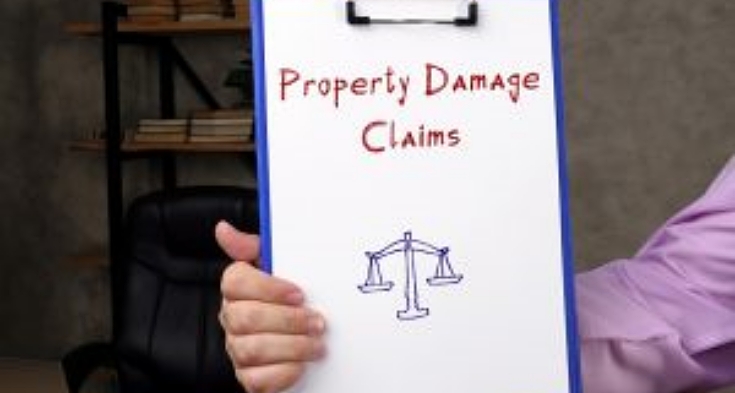
As a nurse, you’ve devoted your career to helping patients. That’s why Protecting Your Nursing License from a DOH administrative complaint is so crucial—it represents safeguarding everything you’ve worked hard to achieve. The fear of losing your license is real, and the uncertainty of the legal process can feel overwhelming.
You don’t have to face this challenge alone. With the right guidance, you can confidently navigate the process, assert your rights, and protect the career you’ve built.
Need immediate guidance? Contact Elevate Legal Services, PLLC, today. Call us at 561-770-3335 and email us at [email protected] for a confidential consultation. We are here to help you speak with an attorney about your case and create a clear path forward.
By the end of this article, you will understand the common allegations you may face, the key stages of a DOH investigation, and a clear, solution-oriented path forward. You’ll learn how a strategic defense can protect your nursing license and your professional future.
What is an Administrative Complaint?
 An administrative complaint is a formal, legal document filed by the Florida Department of Health (DOH) against a licensed professional, such as a nurse. It’s not a criminal charge, but rather an official accusation that you have violated a professional or regulatory statute.
An administrative complaint is a formal, legal document filed by the Florida Department of Health (DOH) against a licensed professional, such as a nurse. It’s not a criminal charge, but rather an official accusation that you have violated a professional or regulatory statute.
Here’s what that means:This complaint is the start of a formal disciplinary process that could result in a fine, license suspension, or even permanent revocation of your nursing license. It is a serious matter that requires a strategic and timely response.
Types of Administrative Complaints and Allegations
When the DOH initiates an investigation, the complaint is based on a specific violation of Florida Statutes. Understanding the nature of the allegation is the first step toward building a strong defense.
- Impaired Practice (F.S. 464.018(1)(d)3):This serious allegation pertains to a nurse who is unable to practice with reasonable skill and safety. Allegations can arise from conditions such as substance use, illness, or a physical or mental health concern. The DOH’s priority is public safety, and a finding of impairment can lead to severe penalties, including mandatory participation in the Intervention Project for Nurses (IPN), license suspension, or even revocation.
- Assault or Battery (F.S. 464.018(1)(d)5):This statute addresses disciplinary action against a nurse who has been found guilty of, or entered a plea of guilty or nolo contendere to, a crime related to assault, battery, and culpable negligence (Chapter 784, Florida Statutes). A conviction or plea under this statute can have a direct and severe impact on your nursing license.
- Prescribing Without Authority (F.S. 464.018(1)(d)9):This section applies to nurses accused of issuing a prescription without the proper authority. This could be interpreted as prescribing outside their scope of practice or without the necessary delegation from a supervising physician. The DOH treats these violations with high scrutiny, and the potential for fines and loss of licensure is a significant risk.
What Are the Penalties for Violations?
The penalties for DOH administrative violations are serious and can have a lasting impact on your professional life. The Florida Board of Nursing has specific disciplinary guidelines that outline a range of penalties, which can be tailored based on the severity of the offense and any mitigating or aggravating circumstances.
Possible outcomes include:
- License Suspension or Revocation:This is one of the most severe penalties, which can either temporarily or permanently prevent you from practicing as a nurse in Florida.
- Administrative Fines:The DOH can impose significant fines. Depending on the violation, these fines can range from a few hundred to over ten thousand dollars per offense.
- Probation:A nurse may be placed on probation for a specified period. During this time, they must comply with specific conditions, such as supervision, periodic reporting, or limitations on their practice.
- Public Reprimand:This is a formal, public statement that reprimands the nurse for their conduct. It is a matter of public record, viewable by employers and licensing boards in other states.
- Mandatory Continuing Education:A nurse may be required to complete specific remedial courses or additional continuing education to address the deficiencies in their practice.
The DOH Administrative Process: Your Legal Roadmap
The DOH administrative process is a formal legal procedure with critical deadlines. Navigating it requires a proactive and informed strategy.
Step 1: The Initial Complaint.The process begins with the official Notice of Complaint from the DOH. This document will outline the specific allegations and the Florida Statutes you are accused of violating. Here’s what you need to know:This is a legal notice, not just a warning. Immediate action is required.
Step 2: The Right to Respond.You have a limited timeframe, typically 20 days, to file a formal response. It is a crucial legal step that should not be taken without professional guidance. This is when you should immediately seek counsel from an attorney specializing in nurse defense.
Step 3: The DOH Investigation.The DOH will conduct a detailed investigation. They will gather evidence, interview witnesses, and review your professional records. What you should do during this phase:All communication with investigators should go through your attorney. Do not provide statements or documents on your own.
Step 4: The Election of Rights.You will be presented with an Election of Rights form, where you must choose how to proceed. Your options include requesting a formal hearing, an informal settlement conference, or an informal disposition. An experienced attorney can advise you on the best strategic option for your case.
Step 5: Settlement or Hearing.If you opt for a settlement, your attorney will negotiate with the DOH to reach an agreement that may include a public reprimand, fines, or a probationary period. If you contest the allegations, the case will proceed to a formal administrative hearing, where an Administrative Law Judge will hear evidence and make a final determination.
Building a Strategic Defense: Protecting Your Nursing License
A strong defense is built on a foundation of facts, evidence, and skilled legal advocacy. The strategy we employ will be tailored to the specifics of your case.
- For Impaired Practice Allegations:We can challenge the DOH’s evidence of impairment, provide documentation of your health and ability to practice safely, and, if applicable, show proactive measures you have taken toward recovery.
- For Prescribing Without Authority Allegations:Our defense can focus on proving that your actions were within your scope of practice, properly delegated by a supervising physician, or that the DOH’s evidence is insufficient.
In any case, we will work with you to gather all relevant documentation, including clinical records, delegation agreements, and witness statements, to build the strongest possible defense.
Why Professional Legal Representation is Non-Negotiable
 Your nursing license represents your livelihood. Protecting Your Nursing License from a DOH administrative complaint on your own can lead to costly mistakes.
Your nursing license represents your livelihood. Protecting Your Nursing License from a DOH administrative complaint on your own can lead to costly mistakes.
- Insider Knowledge:We have extensive experience with the DOH and its processes. We understand the legal and procedural nuances that can mean the difference between keeping your license and losing it.
- Strategic Advantage:From the moment you receive the complaint, we provide a clear, solution-oriented strategy. Our goal is to protect your career and negotiate the most favorable outcome.
- Peace of Mind:You can focus on your work and personal life knowing that a knowledgeable and compassionate legal team is dedicated to advocating for your rights.
Your nursing license is not just a piece of paper—it’s your professional legacy. Let us help you protect it.
Frequently Asked Questions (FAQs)
- How long does the DOH administrative complaint process typically last?The duration can vary widely depending on the complexity of the case. While some cases can be resolved within a few months through settlement, a contested case that goes to a formal hearing can take a year or more.
- Can I be fined by the DOH even if I don’t lose my license?Yes. In addition to other disciplinary actions like a reprimand or probation, the DOH can impose significant administrative fines as a penalty for violations of Florida Statutes.
- What is the difference between an informal and a formal hearing?An informal hearing is a review of the DOH’s investigative report by the Board of Nursing. You do not present evidence or call witnesses. A formal hearing is a full legal trial before an Administrative Law Judge, where both sides can present evidence and cross-examine witnesses.
- Will a DOH complaint become part of my public record?Yes. If the DOH takes final action on a complaint, the outcome becomes a matter of public record. This record can be accessed by employers, professional licensing boards in other states, and the public.
- How can I find out if a complaint has been filed against me?You will be notified in writing via certified mail if an administrative complaint has been filed. If you suspect an investigation is underway but haven’t received a notice, you can check your license status on the DOH website. However, this is not a substitute for formal notification.
Protecting Your Nursing License Today
The time to act is now. A DOH administrative complaint is a time-sensitive matter that requires immediate attention. Don’t risk your professional reputation and future by waiting.
Take the first step toward securing your career. Contact Elevate Legal Services, PLLC, today for a confidential consultation. Our attorneys are prepared to provide authoritative legal guidance and compassionate representation that you deserve.
At Elevate Legal Services, PLLC, we provide aggressive defense. We are ready to listen to your story, answer your questions, and build the strong defense you deserve.
Don’t wait. Call us today at 561-770-3335 for a confidential consultation or complete our online contact form. Protecting your nursing license with trusted legal representation from Elevate Legal Services, PLLC.





